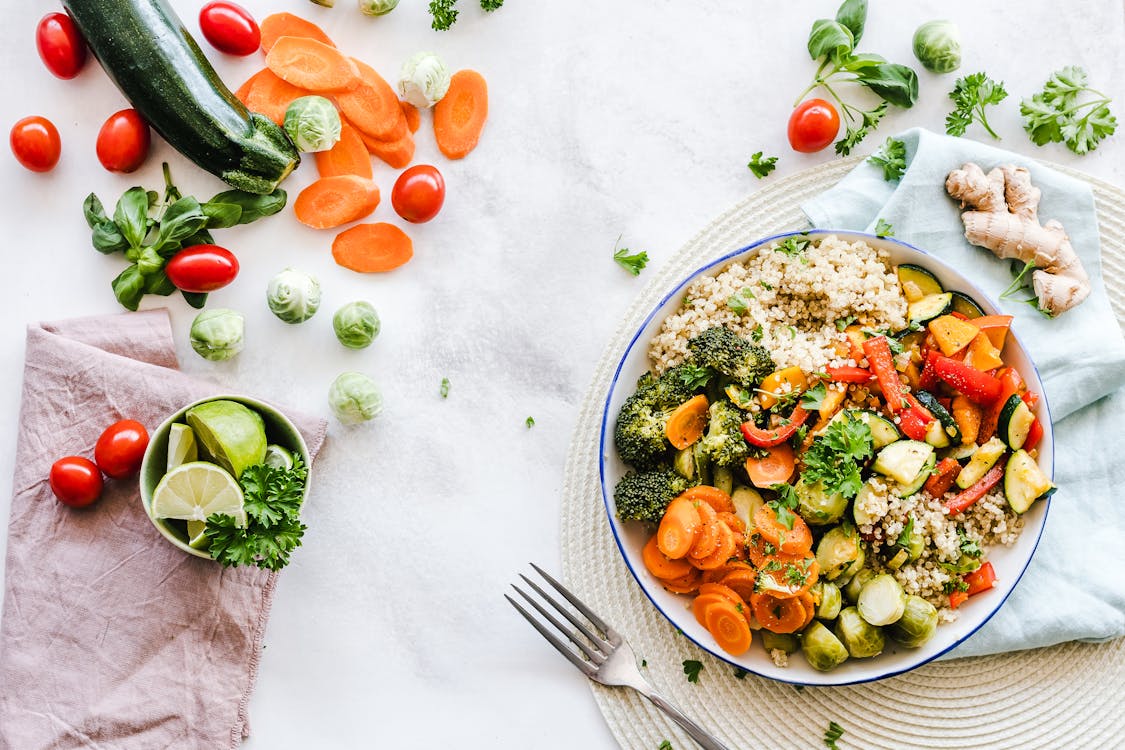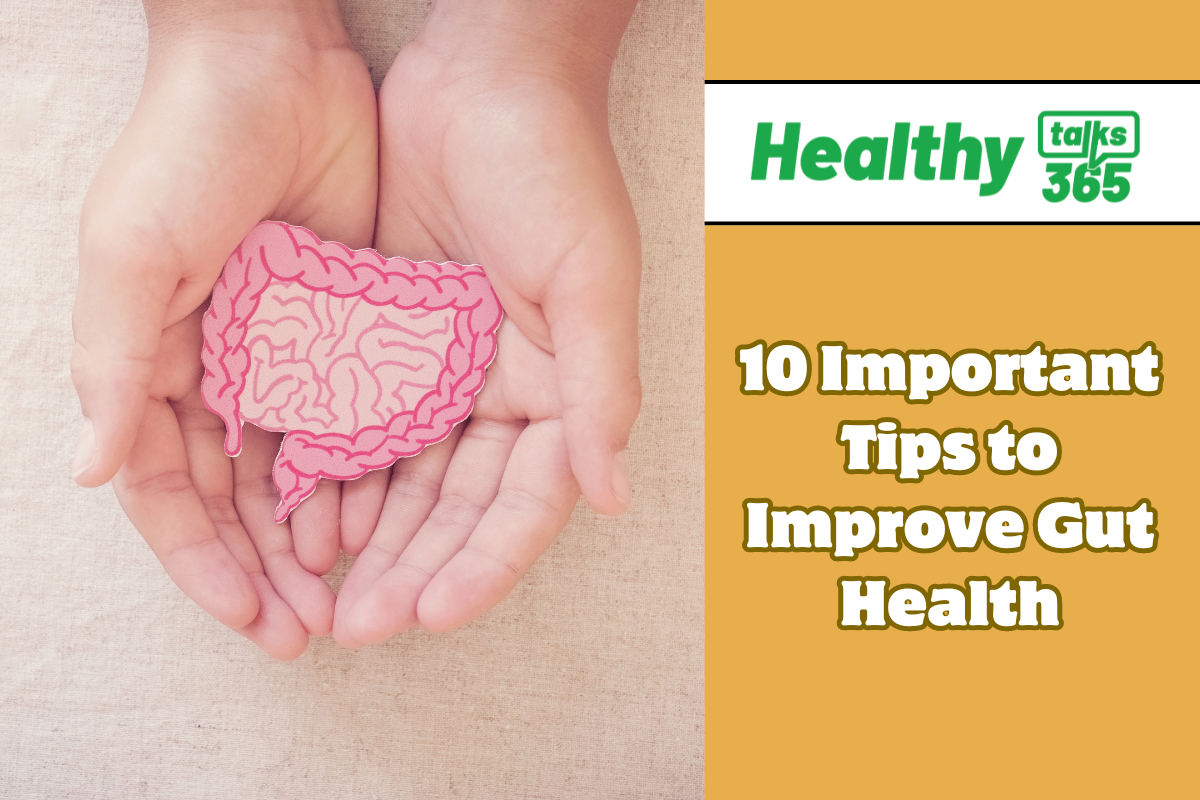10 Important Tips to Improve Gut Health
1. Avoid junk food to improve gut health
It’s really important to avoid junk food if we want to improve our gut health. Junk food, like fast food and sugary snacks, is packed with unhealthy stuff that can really upset our stomachs.
When we eat too much junk food, it can throw off the balance of good and bad bacteria in our gut. This can lead to all sorts of problems like bloating, gas, and tummy aches.
What’s more, junk food doesn’t give our bodies the important things they need, like fiber and vitamins. Without these nutrients, our gut can’t do its job properly.
Plus, junk food can cause inflammation in our gut, which can make us feel really sick. It can even harm the lining of our gut, allowing bad stuff to get into our bodies.
So instead of reaching for junk food, it’s a good idea to choose healthier options like fruits, veggies, and lean proteins. These foods have all the good stuff our bodies need to keep our gut healthy and happy.
Read Also:
Healthy Foods For Keeping Healthy Weight In Winters Cold
2. Add green vegetables in your diet to improve gut health
Adding green vegetables to your diet is a simple yet effective way to improve your gut health. These veggies, such as spinach, kale, and broccoli, are packed with essential nutrients that can benefit your digestive system.
Green vegetables are rich in fiber, which is important for keeping your digestive system running smoothly. Fiber helps regulate bowel movements and prevents constipation, ensuring that everything moves through your gut properly.
Moreover, fiber acts as fuel for the good bacteria in your gut, promoting their growth and diversity. This helps maintain a healthy balance of bacteria in your gut, which is crucial for overall gut health.
Green vegetables are also loaded with vitamins and minerals that support gut function. For example, they contain vitamin C, which boosts your immune system and protects your gut from harmful pathogens. They also provide vitamin K, which is essential for blood clotting and may help maintain a healthy gut microbiome.
Green vegetables are a great source of antioxidants, which help reduce inflammation in the gut and protect against oxidative stress. This can lower your risk of developing digestive disorders and keep your gut healthy.

3. Consume protein rich food to improve gut health
Eating foods rich in protein can help make your gut healthier. Foods like lean meats, fish, eggs, dairy, beans, nuts, and seeds are all good sources of protein.
Proteins are like the building blocks that repair and protect your gut lining. They help keep harmful substances out and make sure your gut stays strong.
Plus, proteins contain amino acids that your gut needs to stay healthy. Some amino acids, like glutamine, help repair your gut lining and keep it strong.
Eating protein-rich foods also helps the good bacteria in your gut grow and stay healthy. These bacteria are important for digestion and keeping you healthy.
And when you eat protein, you feel full for longer, which can help you manage your weight and keep your gut happy.
4. Add nuts in your diet to improve gut health
Adding nuts to your diet can be a simple and effective way to improve your gut health. Nuts, such as almonds, walnuts, and cashews, are not only tasty but also packed with nutrients that benefit your digestive system.
Nuts are rich in fiber, which is essential for maintaining regular bowel movements and supporting a healthy gut microbiome. Fiber helps to keep your digestive system running smoothly and can prevent issues like constipation and bloating. By incorporating nuts into your diet, you can increase your fiber intake and promote overall gut health.
Moreover, nuts contain healthy fats, such as omega-3 fatty acids, which have anti-inflammatory properties. These fats can help reduce inflammation in the gut and lower the risk of digestive disorders. Including nuts in your diet can provide a source of healthy fats that support gut function and protect against inflammation-related gut issues.
Additionally, nuts are a great source of vitamins and minerals that are important for digestive health. For example, nuts are high in vitamin E, which acts as an antioxidant and helps protect the cells lining the digestive tract. They also provide magnesium, a mineral that supports muscle function and helps regulate bowel movements.
Nuts are a convenient and versatile snack option that can be easily incorporated into your daily routine. You can enjoy them on their own as a snack or add them to meals like salads, yogurt, or oatmeal. By including nuts in your diet, you can not only improve your gut health but also enjoy a tasty and nutritious addition to your meals.
Read Also:
11 Best Ways to Improve Your Digestion
5. Consume fresh and seasonal fruits to improve gut health
Eating fresh, seasonal fruits is a great way to make your gut healthier. Fruits are not only tasty but also packed with nutrients that keep your digestive system in good shape.
Fresh fruits have fiber that helps you stay regular and supports the good bacteria in your gut. By eating different fruits, you can get more fiber and keep your gut working well.
Also, fruits like oranges and bananas have vitamins and minerals that help your gut stay strong. These nutrients protect your gut from getting sick and help it work properly.
Plus, fruits have antioxidants that fight inflammation and keep your gut healthy. And since fruits have lots of water, they help keep your digestion smooth and prevent constipation.
6. Eat dairy products to improve gut health
Eating dairy products can help your gut stay healthy. Products like milk, yogurt, and cheese are full of good stuff that supports digestion.
Dairy has probiotics, which are helpful bacteria that keep your gut balanced. They help with digestion and keep your immune system strong. By having dairy, you bring these helpful bacteria into your gut to keep it healthy.
Also, dairy has calcium, which makes your bones and teeth strong. Calcium also helps your muscles work well and keeps your digestion regular. So, having dairy ensures you get enough calcium for a healthy gut.
Plus, dairy is packed with protein, which helps repair and build tissues in your body, including your gut. Protein also makes you feel full after eating, which helps with healthy digestion.

7. Eat avocado to improve gut health
Adding avocado to your diet can be a simple yet effective way to improve your gut health. Avocado is not only delicious but also packed with nutrients that support a healthy digestive system.
Avocado is rich in fiber, which is essential for keeping your digestive system running smoothly. Fiber helps to regulate bowel movements, prevent constipation, and promote the growth of beneficial bacteria in your gut. By including avocado in your diet, you can increase your fiber intake and support overall gut health.
Moreover, avocado contains healthy fats, such as monounsaturated fats, which have been linked to improved gut health. These fats help reduce inflammation in the gut and support the absorption of nutrients. Including avocado in your diet can provide a source of healthy fats that support gut function and protect against gut issues.
Avocado is a good source of vitamins and minerals that are important for digestive health. For example, avocado is high in potassium, which helps regulate fluid balance and maintain proper muscle function in the digestive tract. It also provides vitamin E, an antioxidant that helps protect the cells lining the digestive tract from damage.
8. Have low fat snacks to improve gut health
Choosing low-fat snacks can help your gut feel better. These snacks are easier for your body to handle and can prevent tummy troubles.
Eating low-fat snacks also helps you stay at a healthy weight, which is good for your gut. Being overweight can cause problems like heartburn and constipation.
Plus, low-fat snacks often have more fiber, which is important for a healthy gut. Fiber helps keep your digestion regular and supports good bacteria in your gut.
Low-fat snacks also have less of the bad fats that can make your gut inflamed. By choosing these snacks, you’re giving your gut a break from harmful fats.
Read Also:
9. Eat yoghourt to improve gut health
Eating yogurt is a smart choice for improving your gut health. Yogurt contains probiotics, which are helpful bacteria that keep your gut balanced and healthy.
By having yogurt regularly, you can support a happy gut and improve your digestion. Plus, yogurt is tasty and versatile, making it an easy addition to your meals or snacks. It’s also packed with protein and calcium, which are important for your body’s overall health. So, next time you’re looking for a gut-friendly snack, consider reaching for some yogurt!
10. Consume fermented food to improve gut health
Incorporating fermented foods into your diet can be a great way to boost your gut health. Fermented foods are rich in probiotics, which are beneficial bacteria that promote a healthy balance in your gut microbiome. By regularly consuming fermented foods such as yogurt, kimchi, sauerkraut, and kombucha, you can introduce a diverse array of probiotics into your digestive system, supporting optimal digestion and overall well-being.
These probiotics help maintain the delicate balance of bacteria in your gut, which is essential for proper digestion and nutrient absorption. Additionally, fermented foods are often rich in vitamins, minerals, and antioxidants, further supporting gut health and overall immunity.





